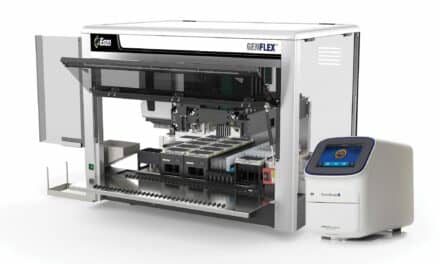Sequenom Inc, San Diego, has entered into a clinical collaboration with the University of Colorado, Denver, School of Medicine (CU School of Medicine).
Under the collaboration agreement, CU researchers will explore the utility of Sequenom’s research use only (RUO) liquid biopsy assay to determine whether the profiling of circulating tumor DNA (ctDNA) can be used to monitor treatment response and relapse in melanoma patients. The study will examine the potential of the technology to overcome the challenges and limitations associated with current methods of monitoring treatment response, such as invasive biopsies and repeated imaging studies.
“In just the last few years, we have made significant progress in the treatment of melanoma patients in whom the disease has progressed beyond the skin to involve internal organs,” says William Robinson, MD, PhD, professor in the division of medical oncology and Rella and Monroe Rifkin endowed chair at the CU School of Medicine. “I believe that the ability to match patients to new treatment options and to monitor their response with a simple blood test will yield significant clinical benefit.
“We anticipate that the collaboration with Sequenom will allow us to closely monitor treatment response and the emergence of resistance mutations over time, and to make changes or adjustments in treatment much earlier than can be done currently,” Robinson adds.
Sequenom is currently developing an RUO assay with an initial focus on the detection and molecular profiling of late-stage nonhematologic malignancies, where tissue biopsies are not available or too risky to obtain. The assay will cover a breadth of cancer types by analyzing more than 100 cancer-related genes that are associated with an FDA-approved drug treatment, included in professional society guidelines, linked to targeted therapies currently in clinical trials, or part of well-documented cancer pathways.
“Liquid biopsy has many potential applications for a variety of cancers,” says Daniel Grosu, MD, chief medical officer at Sequenom. “This is our first collaborative study focusing on melanoma, which expands the range of cancers and clinical care settings that we are exploring with this novel technology. We are uniquely positioned to leverage our strong expertise in testing circulating cell-free DNA to move liquid biopsy from a research concept to routine clinical practice in oncology.”
For more information, visit Sequenom.





